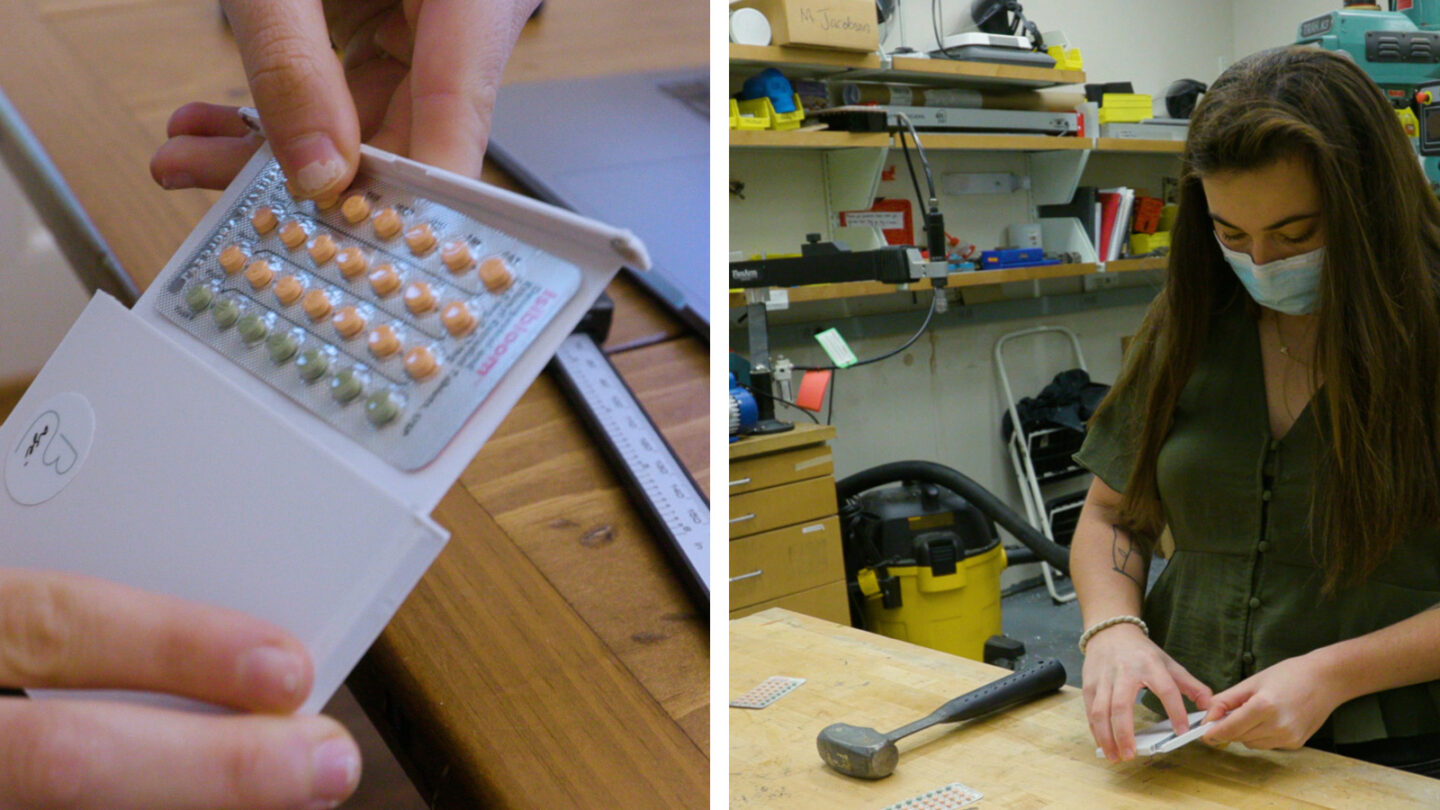According to a 2018 study by the Guttmacher Institute, 7% of women in the U.S. using birth control pills become pregnant—most likely due to inconsistent use.
Sammie Hasen, a fourth-year biomedical student at Georgia Tech, witnessed her friends struggling to remember to take a daily contraceptive pill and decided to attach it to the one thing no one leaves home without.
BCase is a cell phone case with a sliding compartment that fits most birth control packs.
Ultimately, I hope to give all uterus owners that use birth control ease of mind and to really lower down that unplanned pregnancy number.”
Sammie Hasen
Hasan surveyed hundreds of women who said their main concern with birth control pills was forgetting to take them—even after setting an alarm on their phones.
“Most products that are being made specifically for women aren’t being designed by women at all,” Hasen said. “And that started to make some sense as to why there are so many big design flaws in these products that we have to use every day.”

Hasen worked with her professors and advisors to create a 3D printed prototype. She started a crowdfunding campaign in February to finance the manufacturing of the final design and reached her goal within 24 hours.
“This was the first idea I’ve had that everyone was like, ‘How has no one thought of that before?”’ Hasen said. “This has been the first invention of mine that has had so much community support. I even have women reaching out who want to work for me, which is a really cool thing to happen.”
Inclusivity is also a significant focus for Hasen. She’s committed to considering the needs of anyone who uses these products regardless of gender identity.
“A lot of these products that are made in the feminine product industry are actually geared only towards people who identify as women,” Hasen said. “That really leaves out some many other people who use these products daily.”
Eventually, Hasen wants to launch an entire suite of products through her company Medsur to address the pain points surrounding reproductive health and sexual wellness. She credits crowdsourcing consumer experiences as the key to creating better design and lowering health risks.
“Ultimately, I hope to give all uterus owners that use birth control ease of mind and to really lower down that unplanned pregnancy number,” she said.
Samantha Killebrew and Brianna Carr contributed to this report.









